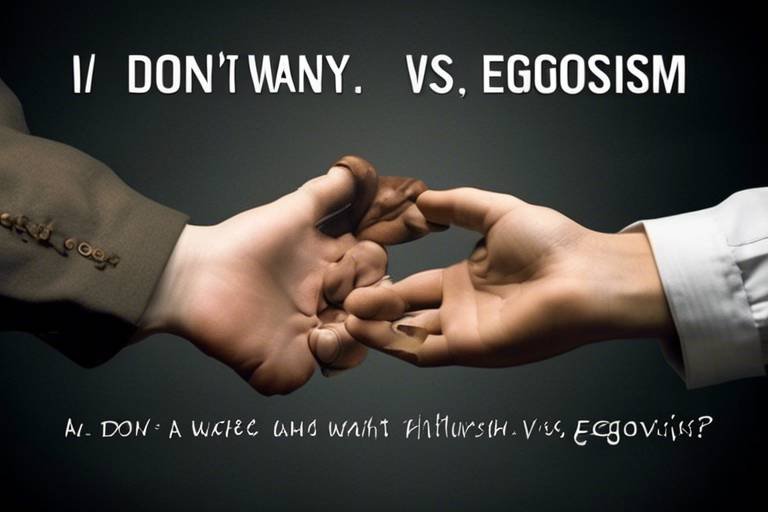The Role of Faith in Philosophy
Exploring the intersection of faith and philosophical thought, this article delves into how belief systems shape human understanding, ethics, and existential inquiries across various philosophical traditions. Faith is not just a mere concept; it is a profound force that influences our worldview and shapes our understanding of existence. When we think about faith, we often consider its implications in religion, but its reach extends far beyond that. It intertwines with our ethical frameworks, our existential questions, and even our pursuit of knowledge. So, what exactly is the role of faith in philosophy? Is it a guiding light or a potential stumbling block? Let’s dive deeper into this fascinating topic.
Understanding faith is crucial in philosophy. It encompasses belief, trust, and confidence in concepts or entities, often transcending empirical evidence. This unique quality of faith influences philosophical discourse on knowledge, existence, and morality. For instance, when we rely on faith, we often step beyond the realm of what can be scientifically proven. This leap can lead to profound insights, but it also raises questions about the reliability of such beliefs. How do we differentiate between faith that enriches our understanding and faith that leads us into dogmatism? This delicate balance is a central theme in philosophical discussions.
Throughout history, faith has been a central theme in philosophy. Ancient philosophers, theologians, and modern thinkers have grappled with its implications for human thought and existence, shaping diverse philosophical traditions. The journey of faith through philosophical history is a tapestry woven with various threads. From the ancient insights of Plato and Aristotle to the modern existential musings of Kierkegaard and Nietzsche, faith has consistently played a pivotal role. Each thinker brings their unique perspective, contributing to a richer understanding of how faith interacts with reason, ethics, and human experience.
Ancient philosophers like Plato and Aristotle explored the role of faith in understanding the cosmos, ethics, and the divine, laying foundational ideas that continue to influence philosophical inquiry today. Their work invites us to consider how faith can be a bridge to deeper understanding. For instance, Plato’s allegory of the cave illustrates the contrast between belief and knowledge, emphasizing the journey from ignorance to enlightenment, where faith plays a pivotal role in perceiving higher truths. Similarly, Aristotle’s virtue ethics highlights the importance of character and moral virtues, suggesting that faith in ethical principles can guide individuals toward a fulfilling and virtuous life.
Plato’s allegory is more than just a philosophical concept; it is a powerful metaphor for the human condition. It illustrates how our perceptions can be limited and how faith can help us break free from those limitations. Just as the prisoners in the cave must trust the journey toward the light, we too must have faith in our pursuit of truth, even when the path is fraught with uncertainty.
In Aristotle’s view, faith is not merely an abstract notion; it is a guiding principle that shapes our actions and character. By cultivating virtues and having faith in ethical principles, individuals can navigate the complexities of life. This faith in virtue becomes the compass that directs us toward a meaningful existence.
Modern philosophers such as Kierkegaard and Nietzsche examined faith’s existential dimensions, questioning its role in personal identity, meaning, and the human condition in a rapidly changing world. Kierkegaard introduced the concept of the leap of faith, suggesting that true belief requires embracing uncertainty and making a personal commitment to faith amid existential dilemmas. On the other hand, Nietzsche’s proclamation of the death of God challenges traditional faith, prompting philosophical inquiry into the implications for morality, meaning, and the human experience in a secular age.
The relationship between faith and reason has been a longstanding debate in philosophy, with various thinkers arguing whether faith complements or contradicts rational thought in the pursuit of truth. This intersection is where many philosophical discussions find their most vibrant expressions. For some, faith acts as a complement to reason, offering a broader context for understanding existential questions and moral dilemmas that pure rationality may not fully address. Others contend that faith and rationalism are inherently opposed, suggesting that reliance on faith can lead to dogmatism, while reason encourages skepticism and critical thinking in philosophical discourse.
Existential philosophers often explore faith as a response to life's inherent uncertainties, emphasizing individual choice, authenticity, and the quest for meaning in an often absurd world. This exploration is not just theoretical; it resonates deeply with our lived experiences. The struggle to find meaning in chaos is a universal human condition, and faith can be a beacon of hope in navigating that chaos.
The interplay between faith and ethics raises profound questions about moral frameworks. Philosophers debate whether ethical principles are grounded in faith, reason, or a combination of both. Theological ethics posits that moral values derive from divine commands, suggesting that faith-based systems provide a foundation for ethical behavior and decision-making in human societies. Conversely, secular ethics argues for moral reasoning independent of faith, asserting that ethical principles can be derived from human experience, logic, and the collective well-being of society.
As contemporary society evolves, the role of faith in philosophy continues to adapt, prompting ongoing discussions about its relevance in addressing modern existential and ethical challenges. Interfaith dialogues encourage philosophical exploration of faith across cultures, fostering mutual understanding and cooperation in addressing global issues through shared ethical frameworks. In an increasingly scientific world, the challenge remains to reconcile faith with empirical knowledge, prompting philosophers to explore new paradigms that honor both belief and scientific inquiry.
- What is the primary role of faith in philosophy? Faith serves as a lens through which individuals interpret existence, ethics, and knowledge, influencing their understanding of reality.
- How do ancient philosophers view faith? Ancient philosophers like Plato and Aristotle regarded faith as essential for understanding higher truths and guiding moral behavior.
- Can faith and reason coexist? Yes, many philosophers argue that faith can complement reason, providing a broader context for understanding complex existential questions.
- What is the significance of Kierkegaard's leap of faith? Kierkegaard's leap of faith emphasizes the necessity of embracing uncertainty and making personal commitments in the search for meaning.
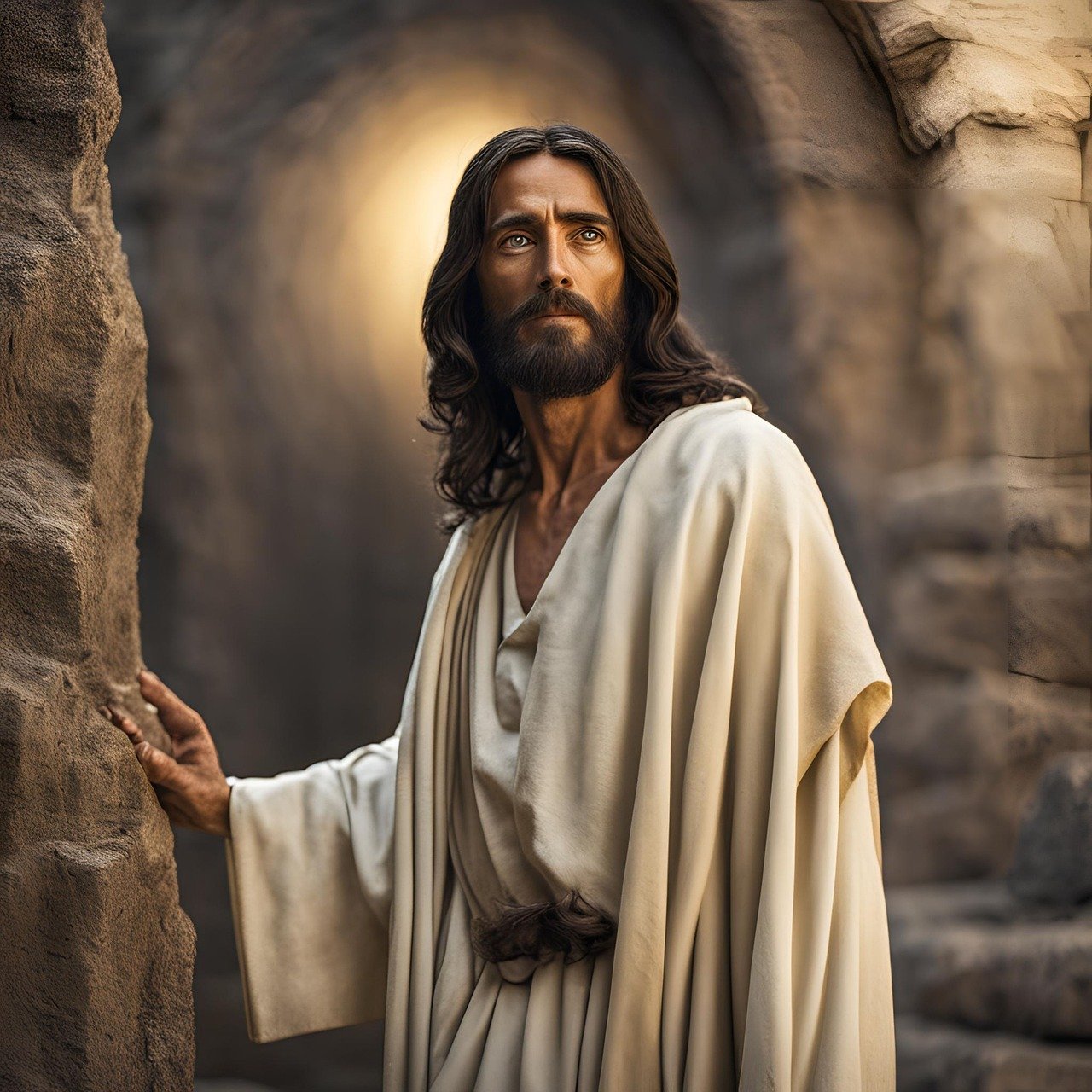
The Definition of Faith
Understanding faith is crucial in the realm of philosophy. At its core, faith encompasses a deep-seated belief, trust, and confidence in concepts or entities that often transcend empirical evidence. This notion isn't merely about religious beliefs; it extends to various aspects of human experience, including personal relationships, ethical principles, and even scientific theories. Faith shapes how we perceive the world and influences the philosophical discourse surrounding knowledge, existence, and morality.
To grasp the multifaceted nature of faith, it’s essential to recognize its different dimensions. Faith can be categorized into several types, each playing a unique role in human understanding:
- Religious Faith: This is the belief in a higher power or divine being, often accompanied by specific doctrines or teachings.
- Philosophical Faith: This involves trust in philosophical concepts or ideas that guide one's understanding of existence and ethics.
- Personal Faith: This pertains to the confidence one has in personal relationships, values, and self-belief.
- Scientific Faith: Although seemingly contradictory, this refers to the trust in scientific methods and theories, acknowledging that while they are based on evidence, they also require a degree of faith in the process and outcomes.
Faith is not static; it evolves as individuals encounter new experiences and information. This evolution can lead to a profound transformation in how one interprets reality and engages with philosophical questions. For instance, someone might initially hold a strong religious faith but later find that their philosophical inquiries lead them to adopt a more secular viewpoint, or vice versa. This fluidity highlights the dynamic interplay between faith and reason, inviting ongoing exploration of what it means to believe.
Moreover, faith often serves as a foundation for ethical decision-making. People frequently rely on their faith to navigate moral dilemmas, guiding them toward what they perceive as 'right' or 'just.' This reliance on faith can be both empowering and limiting, depending on how rigidly one adheres to their beliefs. The challenge lies in balancing faith with critical thinking, ensuring that one's convictions are not merely accepted dogmas but are continually examined and refined.
In summary, faith is a complex and integral part of philosophical inquiry. It shapes our understanding of the world and influences our ethical frameworks, prompting us to ask deeper questions about existence and morality. As we continue to explore the role of faith in philosophy, we must remain open to the diverse ways it manifests in our lives and the profound impact it has on our collective human experience.

Historical Perspectives on Faith
Throughout history, the concept of faith has been a pivotal theme in philosophical discourse. From ancient civilizations to modern thought, faith has shaped human understanding and ethical frameworks. Philosophers, theologians, and thinkers have wrestled with the implications of faith in relation to existence, knowledge, and morality. This journey through time reveals how faith has influenced various philosophical traditions, creating a rich tapestry of ideas that continue to resonate today.
In ancient philosophy, figures like Plato and Aristotle laid the groundwork for understanding faith's role in human thought. They explored the intersection of belief and knowledge, contemplating how faith could serve as a bridge to greater truths. For instance, Plato’s allegories often illustrated the struggles between the known and the unknown, suggesting that faith was essential in the pursuit of higher understanding. Aristotle, on the other hand, emphasized the importance of virtue and character, proposing that faith in ethical principles could guide individuals toward a meaningful life.
As we move into the modern era, the discussion surrounding faith takes on new dimensions. Philosophers like Søren Kierkegaard and Friedrich Nietzsche challenged traditional views, examining faith's existential implications. Kierkegaard introduced the idea of the "leap of faith," arguing that true belief requires an embrace of uncertainty. This perspective highlights the personal commitment involved in faith, suggesting that it is not merely a passive acceptance of doctrine but an active choice in the face of life's ambiguities.
Nietzsche, famously declaring the "death of God," provoked a reevaluation of faith in a secular age. His work questioned the foundations of morality and meaning, pushing philosophers to explore the implications of a world without traditional religious frameworks. This tension between faith and secularism continues to spark debate, as thinkers strive to understand the role of faith in a rapidly changing cultural landscape.
To better understand the historical perspectives on faith, we can categorize some key philosophical movements and their views on faith:
| Philosopher/Movement | View on Faith |
|---|---|
| Plato | Faith as a means to higher knowledge and truth. |
| Aristotle | Faith in ethical principles guides virtuous living. |
| Kierkegaard | Faith requires a personal leap into the unknown. |
| Nietzsche | Challenges the relevance of faith in a secular world. |
In conclusion, the historical perspectives on faith reveal a dynamic interplay between belief and philosophical inquiry. From ancient times to the modern age, faith has been a crucial element in shaping ethical thought and existential understanding. As we continue to grapple with these ideas, it becomes clear that faith is not simply a relic of the past but a vital aspect of human experience that invites ongoing exploration and dialogue.
- What is the relationship between faith and philosophy? Faith often serves as a foundation for philosophical inquiry, influencing ethical frameworks and existential questions.
- How have ancient philosophers viewed faith? Ancient philosophers like Plato and Aristotle considered faith essential for understanding knowledge and ethics.
- What role does faith play in modern philosophy? Modern philosophers challenge traditional views of faith, exploring its implications in a secular age.
- Can faith and reason coexist? Many philosophers argue that faith can complement reason, while others see them as opposing forces.

Faith in Ancient Philosophy
When we dive into the realm of ancient philosophy, we uncover a rich tapestry where faith intertwines with the quest for knowledge and understanding. Think about it: ancient philosophers like Plato and Aristotle were not just pondering abstract concepts; they were grappling with fundamental questions about existence, morality, and the universe. Their explorations often hinged on the role of faith—faith in the unseen, in the ethical principles guiding human behavior, and in the pursuit of a higher truth.
Take Plato, for instance. His famous Allegory of the Cave serves as a powerful metaphor for the journey from ignorance to enlightenment. In this allegory, prisoners are chained inside a cave, only able to see shadows cast on the wall. These shadows represent the world of appearances, while the journey outside the cave symbolizes the pursuit of true knowledge. Here, faith plays a crucial role: it is the belief that there is something beyond the shadows, something real and enlightening. This leap of faith is essential for anyone seeking to understand the deeper truths of existence.
On the other hand, Aristotle brought a different flavor to the discussion of faith. His concept of virtue ethics emphasizes the importance of character and moral virtues. Aristotle believed that by cultivating virtues—such as courage, temperance, and wisdom—individuals could achieve a fulfilling and meaningful life. In this context, faith in ethical principles becomes a guiding force. It’s about trusting that these virtues lead to a good life, even when faced with uncertainty or moral dilemmas. Aristotle's approach suggests that faith is not merely a blind leap; rather, it is a reasoned trust in the values that shape our actions.
Moreover, the ancient philosophical discourse was not limited to just these two thinkers. Various other schools of thought, such as the Stoics and the Epicureans, also engaged with the concept of faith. The Stoics, for example, advocated for a life in accordance with nature and reason, yet they recognized the importance of faith in accepting the things we cannot control. The Epicureans emphasized the pursuit of pleasure and avoidance of pain, yet their philosophy also required a certain faith in the idea that simple pleasures lead to a good life.
In essence, the ancient philosophers laid the groundwork for understanding the multifaceted role of faith in human thought. They didn’t just see faith as a religious or spiritual concept; they recognized it as a vital component of human existence, influencing how we understand ourselves and the world around us. Their discussions continue to resonate today, reminding us that faith, in its various forms, is an integral part of the philosophical inquiry that shapes our understanding of life.
- What is the significance of faith in ancient philosophy? Faith in ancient philosophy serves as a bridge between knowledge and belief, influencing ethical frameworks and the pursuit of truth.
- How did Plato view faith? Plato viewed faith as essential for moving beyond ignorance and recognizing higher truths, as illustrated in his Allegory of the Cave.
- What role did Aristotle assign to faith? Aristotle emphasized faith in ethical principles as a guiding force for achieving a fulfilling life through virtue ethics.
- Did other ancient philosophers discuss faith? Yes, other schools like the Stoics and Epicureans also engaged with the concept of faith in relation to nature, reason, and the pursuit of pleasure.

Plato's Allegory of the Cave
Plato’s Allegory of the Cave is a profound metaphor that explores the nature of reality and human perception. Imagine a group of prisoners who have been chained inside a dark cave for their entire lives. They can only see the wall in front of them, where shadows cast by objects behind them are projected. These shadows represent the only reality they know, leaving them in a state of ignorance. This allegory serves as a powerful illustration of how faith and belief can shape our understanding of the world.
In this scenario, the shadows symbolize the illusions that many individuals accept as truth. The prisoners, unaware of the actual objects causing the shadows, live in a world of misconceptions. When one prisoner is freed and ventures outside the cave, he is initially blinded by the sunlight, which represents the harsh light of truth. As his eyes adjust, he begins to see the world as it truly is, filled with vibrant colors and forms that he had never before imagined.
This journey from darkness to light is not just a physical transition but also a metaphysical one. It reflects the philosophical journey of moving from ignorance to knowledge, a process in which faith plays a crucial role. The freed prisoner returns to the cave to enlighten the others, but they resist his revelations, clinging to the familiar shadows. This resistance underscores a critical aspect of human nature: the struggle to accept new ideas and the fear of the unknown.
Plato’s allegory emphasizes that faith can be a driving force in seeking knowledge and understanding. It challenges individuals to question their beliefs and strive for enlightenment. In essence, the allegory illustrates that true knowledge requires a leap of faith—believing in the possibility of a greater reality beyond our limited perceptions. As we navigate our own lives, we must ask ourselves: are we prisoners in our own caves, or are we willing to step into the light of understanding?
Ultimately, Plato's Allegory of the Cave serves as a timeless reminder that the journey toward enlightenment is fraught with challenges. It urges us to examine our beliefs, confront our fears, and embrace the transformative power of faith in our quest for truth.
- What is the main message of Plato's Allegory of the Cave?
The main message is that humans often live in ignorance, perceiving only shadows of reality. True knowledge requires questioning our beliefs and seeking enlightenment beyond our immediate perceptions. - How does faith relate to the Allegory of the Cave?
Faith plays a crucial role in the journey toward enlightenment, as it encourages individuals to believe in a greater reality and to strive for understanding beyond their limited experiences. - Can the Allegory of the Cave be applied to modern life?
Yes, it can be applied to modern life by encouraging individuals to challenge their assumptions, embrace new ideas, and seek deeper understanding in various aspects of life.

Aristotle’s Virtue Ethics
Aristotle's virtue ethics presents a compelling framework for understanding morality through the lens of character and virtue rather than mere rules or consequences. At the heart of this philosophical approach is the concept of arete, which translates to "virtue" or "excellence." Aristotle believed that the ultimate goal of human life is to achieve eudaimonia, often interpreted as "flourishing" or "the good life." This flourishing is not merely about pleasure or the absence of pain, but about realizing one's full potential as a human being.
According to Aristotle, virtues are habits that enable individuals to act according to reason, leading to a balanced and fulfilling life. He categorized virtues into two main types: moral virtues and intellectual virtues. Moral virtues, such as courage, temperance, and justice, are developed through practice and habituation. In contrast, intellectual virtues, such as wisdom and understanding, are cultivated through teaching and experience.
Aristotle famously argued for the "Golden Mean," which suggests that moral virtue lies between extremes. For instance, courage is the mean between recklessness and cowardice. This idea emphasizes that being virtuous is about finding balance and moderation in our actions and emotions. By striving for this balance, individuals can navigate the complexities of life more effectively, making choices that lead to personal and communal well-being.
Moreover, Aristotle contended that faith plays a significant role in virtue ethics. He believed that having faith in ethical principles allows individuals to trust in their moral judgments and the importance of virtues. This faith in virtue not only guides personal conduct but also fosters a sense of community, as individuals who share similar values can work together towards a common good.
In summary, Aristotle’s virtue ethics provides a rich framework for understanding how faith and character intertwine in the pursuit of a meaningful life. By emphasizing the development of virtues and the importance of finding balance, this philosophical approach encourages individuals to reflect on their actions and strive for excellence in their personal and ethical lives.
- What is the main focus of Aristotle's virtue ethics?
Aristotle's virtue ethics focuses on the development of moral character and virtues as the basis of ethical behavior, emphasizing the importance of achieving eudaimonia or flourishing. - How does Aristotle define virtues?
Aristotle defines virtues as habits that enable individuals to act according to reason, leading to a balanced and fulfilling life. - What is the "Golden Mean" in virtue ethics?
The "Golden Mean" is Aristotle's concept that moral virtue lies between extremes, advocating for moderation in emotions and actions. - What role does faith play in Aristotle's virtue ethics?
Faith in ethical principles allows individuals to trust their moral judgments and fosters a sense of community among those who share similar values.
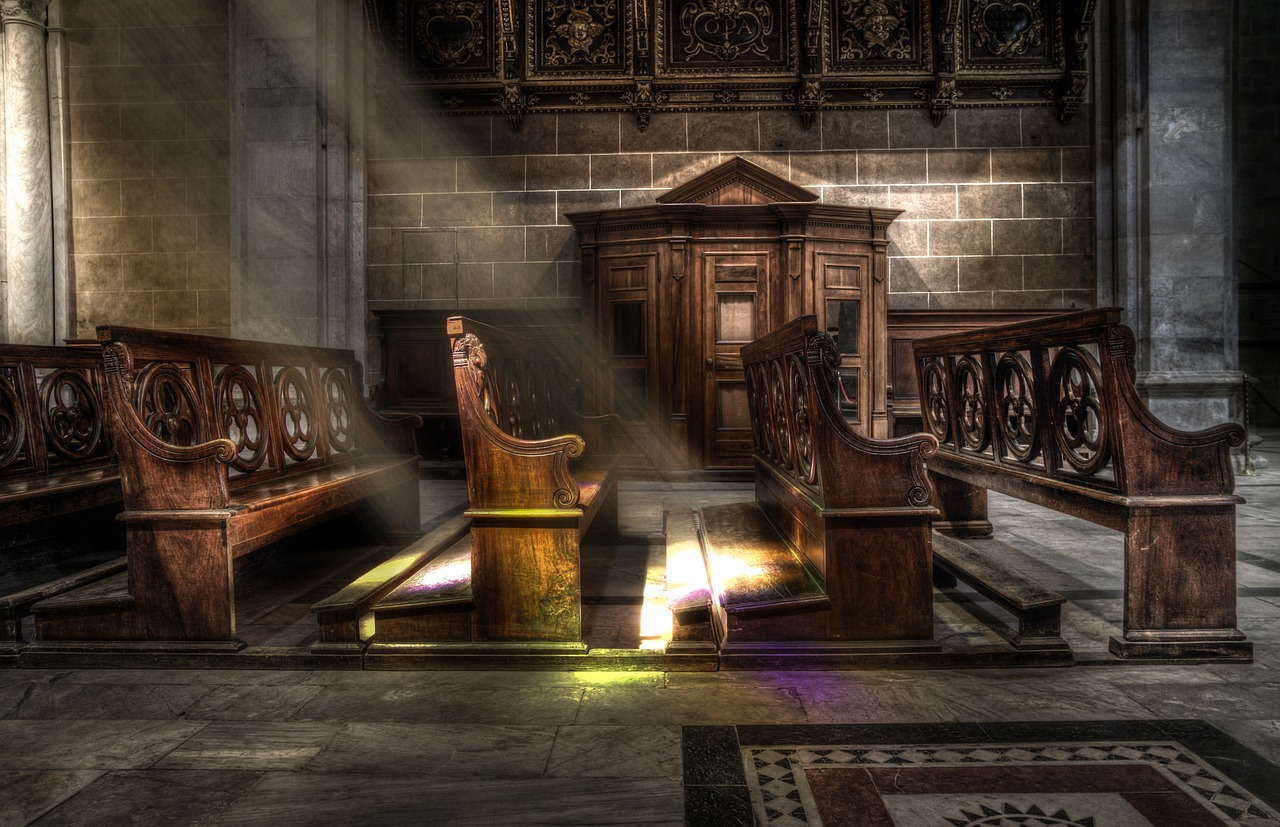
Faith in Modern Philosophy
In the realm of modern philosophy, the concept of faith takes on a multifaceted role, particularly as thinkers grapple with the complexities of human existence and the search for meaning. Philosophers such as Søren Kierkegaard and Friedrich Nietzsche have profoundly influenced our understanding of faith, emphasizing its existential dimensions and its implications for personal identity.
Kierkegaard, often considered the father of existentialism, introduced the notion of the leap of faith. He argued that in a world rife with uncertainty and ambiguity, true belief requires individuals to embrace the unknown and make a personal commitment to faith. This leap is not merely an act of blind belief but rather a conscious choice made in the face of existential dilemmas. Kierkegaard believed that faith is deeply personal; it is about the individual's relationship with the divine and the struggle to find meaning in a seemingly indifferent universe.
On the other hand, Nietzsche's proclamation of the death of God challenges traditional notions of faith. He argued that the decline of religious belief in modern society leads to a crisis of meaning and morality. Without a divine framework to guide ethical behavior, individuals must confront the void left by the absence of God. This existential crisis prompts a reevaluation of faith, pushing individuals to create their own values and meaning in a secular age. Nietzsche’s perspective forces us to consider whether faith can exist independently of religious structures and how individuals navigate their moral landscapes in the absence of divine authority.
Modern philosophy also raises critical questions about the relationship between faith and reason. Some philosophers argue that faith can coexist with rational thought, enhancing our understanding of complex existential questions. This perspective suggests that while reason is vital in our quest for knowledge, faith provides the emotional and spiritual context necessary for grappling with life's deeper mysteries. In contrast, others maintain that faith and rationalism are fundamentally opposed, warning that reliance on faith can lead to dogmatism and hinder critical inquiry.
As we explore the contemporary landscape of philosophy, it becomes clear that faith remains a pivotal theme. It invites us to confront our beliefs, question our assumptions, and seek connections between our inner lives and the external world. The dialogue between faith and reason continues to evolve, reflecting our ongoing struggle to understand our place in the universe.
- What is the leap of faith according to Kierkegaard?
The leap of faith refers to the personal commitment one makes to believe in something despite uncertainty and lack of empirical evidence. - How does Nietzsche's concept of the death of God impact modern philosophy?
Nietzsche's proclamation challenges traditional faith, suggesting that without a divine framework, individuals must create their own values and meaning. - Can faith and reason coexist in modern philosophical discourse?
Yes, many philosophers argue that faith can complement reason, providing emotional and spiritual context to existential inquiries.

The Intersection of Faith and Reason
The relationship between faith and reason has long been a hotbed of philosophical debate, sparking discussions that delve deep into the core of human understanding. Are these two forces in harmony, or do they stand at odds with one another? It's a question that has perplexed thinkers for centuries. On one side, we have those who champion the idea that faith can enrich reason, providing a broader context for tackling life's most profound questions. For instance, consider how faith can serve as a guiding light in moral dilemmas that pure logic may struggle to navigate. When faced with ethical quandaries, faith can offer a sense of purpose and direction, allowing individuals to align their actions with their beliefs.
Conversely, there are philosophers who argue that faith and rationalism are fundamentally incompatible. They contend that reliance on faith can lead to dogmatism, where beliefs become rigid and unquestioned. This perspective holds that reason encourages a spirit of skepticism and critical thinking, essential for philosophical discourse. In this view, the pursuit of truth should be grounded in empirical evidence and logical reasoning, rather than subjective belief systems. The clash between these two perspectives raises essential questions about the nature of knowledge itself and how we come to understand our world.
To illustrate the complexities of this intersection, let’s take a closer look at some key arguments:
- Faith as a Complement to Reason: Proponents of this view argue that faith can enhance our understanding of existential questions. By providing a framework for meaning, faith can fill in gaps that reason alone cannot address.
- Faith vs. Rationalism: Critics of faith argue that it can lead to a rejection of evidence-based reasoning, fostering an environment where beliefs are accepted without question, potentially stifling intellectual growth.
As we explore this intersection, one must consider the implications for personal identity and moral frameworks. How does one’s faith influence their reasoning, and conversely, how does rational thought shape their beliefs? This dynamic interplay is crucial for understanding the human experience, as it reflects our ongoing quest for meaning in a complex world.
Moreover, the dialogue between faith and reason is not just an abstract philosophical exercise; it has practical implications in our daily lives. In moments of crisis or uncertainty, many individuals turn to their faith for comfort and guidance, even when reason suggests a different path. This phenomenon highlights the profound impact of faith on our decision-making processes and ethical considerations.
In conclusion, the intersection of faith and reason is a rich and nuanced area of philosophical inquiry. Both elements play vital roles in shaping our understanding of existence, morality, and the human condition. Whether viewed as complementary forces or opposing ideals, their relationship continues to inspire debate and reflection, challenging us to reconsider how we approach the fundamental questions of life.
- Can faith and reason coexist? Yes, many philosophers believe that faith can provide context for reason, enriching our understanding of complex issues.
- What are the risks of relying solely on faith? Sole reliance on faith can lead to dogmatism and a rejection of critical thinking, which is essential for philosophical inquiry.
- How does faith influence ethical decision-making? Faith often provides a moral framework that guides individuals in making ethical choices, especially in challenging situations.
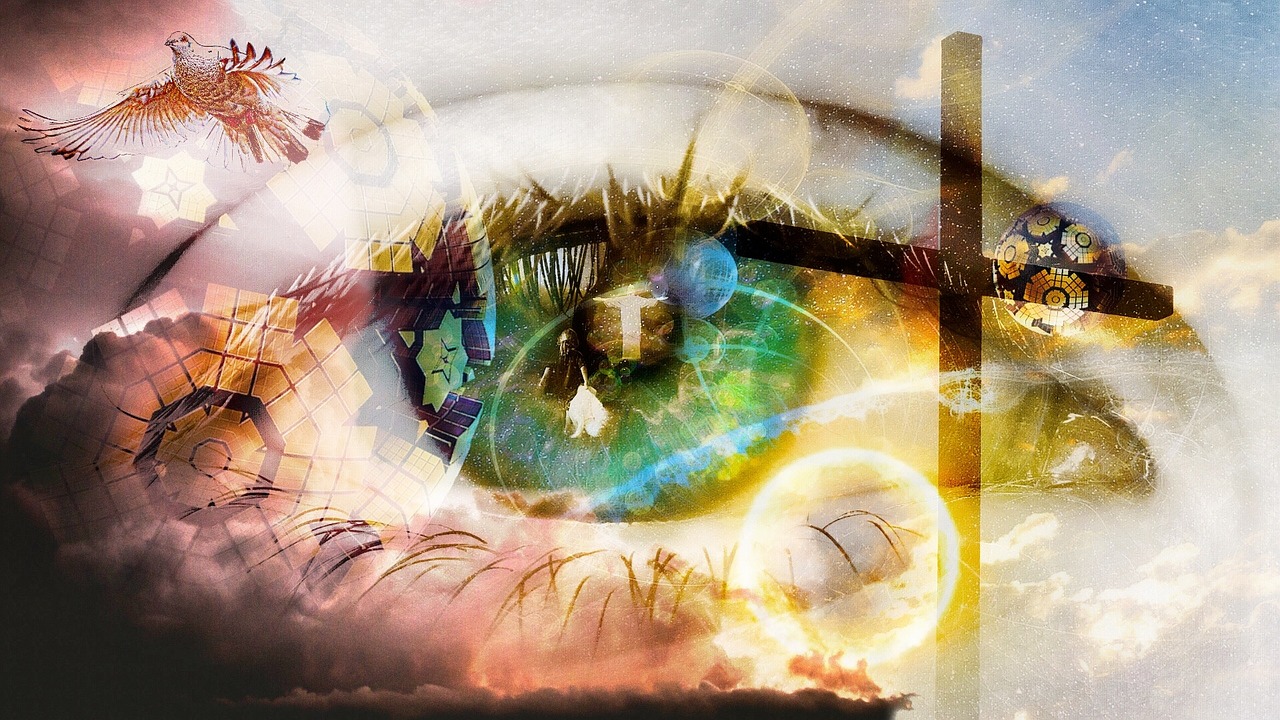
Faith as a Complement to Reason
When we dive into the intricate dance between faith and reason, it becomes evident that these two elements can coexist harmoniously, rather than being at odds. Imagine faith as a warm light illuminating the dark corners of our understanding, while reason acts as the guiding hand that helps us navigate through the shadows. This synergy allows individuals to approach life’s most profound questions with a richer perspective.
Many philosophers have argued that faith can significantly enhance our reasoning capabilities. For instance, when faced with existential dilemmas, faith often provides a context that pure rationality struggles to offer. It’s like trying to solve a complex puzzle without the picture on the box; faith can provide that essential image, guiding us to see beyond mere logic.
Consider the following ways in which faith complements reason:
- Broader Context: Faith can provide a framework that situates rational thought within a larger narrative of existence, helping us to understand our place in the universe.
- Emotional Anchoring: In times of uncertainty, faith can serve as an emotional anchor, allowing reason to operate more effectively by reducing anxiety and fear.
- Motivation for Inquiry: Faith often inspires individuals to seek knowledge and understanding, fueling the desire to explore philosophical questions that reason alone may not provoke.
Moreover, this complementarity is not just a theoretical concept; it manifests in real-world applications. For example, in ethical decision-making, individuals might rely on their faith to guide their moral compass, while also employing reason to evaluate the consequences of their actions. This interplay can lead to more holistic and compassionate outcomes, as both faith and reason contribute to the final decision.
Furthermore, the relationship between faith and reason can be seen through the lens of historical philosophical movements. Thinkers like Immanuel Kant suggested that while reason is essential for understanding the world, faith can fill the gaps where reason alone cannot provide answers, particularly in matters of morality and purpose. In this way, faith becomes an invaluable partner in the quest for knowledge.
Ultimately, embracing faith as a complement to reason allows us to navigate the complexities of life with a more enriched perspective. It encourages a dialogue between our beliefs and our rational thoughts, creating a dynamic interplay that fosters deeper understanding and insight. As we continue to explore the realms of philosophy, recognizing the value of both faith and reason can lead to a more profound grasp of existence and morality.
- Can faith exist without reason? Yes, many people hold beliefs based solely on faith, but integrating reason can enhance understanding and provide a more robust framework for those beliefs.
- How can faith and reason work together in ethical decision-making? Faith can offer moral guidance, while reason helps evaluate the consequences of decisions, leading to more compassionate choices.
- Are there philosophical traditions that emphasize the importance of both faith and reason? Yes, many traditions, including certain branches of Christian existentialism and Jewish philosophy, advocate for a balance between faith and rational thought.

Faith vs. Rationalism
The debate between faith and rationalism has been a cornerstone of philosophical inquiry for centuries. At its core, this discussion examines whether belief systems grounded in faith can coexist with, or even enhance, the principles of rational thought. Some philosophers argue that faith and reason are complementary forces, while others contend that they are fundamentally opposed. This dichotomy raises compelling questions: Can faith provide insights that pure reason cannot? Or does reliance on faith lead to a form of intellectual stagnation?
On one hand, proponents of faith argue that it enriches our understanding of the world by offering a broader context for existential questions. For instance, when faced with moral dilemmas, individuals may find that their faith provides guidance that rational analysis alone cannot. Imagine navigating a complex ethical situation without any moral compass; faith can serve as that compass, helping individuals to make decisions that align with their values and beliefs.
Conversely, rationalists assert that faith can lead to dogmatism, where individuals cling to beliefs without sufficient evidence, stifling critical thinking. They argue that reliance on faith can create an environment where skepticism is discouraged, and questioning is seen as a threat to established beliefs. This perspective raises the concern that if we prioritize faith over reason, we may risk embracing ideas that lack empirical support, ultimately hindering our quest for truth.
To illustrate this tension, consider the following table that summarizes key differences between faith and rationalism:
| Aspect | Faith | Rationalism |
|---|---|---|
| Basis of Belief | Trust in the unseen, often rooted in tradition or spirituality | Dependence on logical reasoning and empirical evidence |
| Approach to Truth | Acceptance of truths that may not be provable | Requirement for proof and validation |
| Response to Doubt | Encourages perseverance through uncertainty | Promotes questioning and skepticism |
Ultimately, the relationship between faith and rationalism is not merely a binary opposition; it is a complex interplay that shapes human thought and behavior. Many individuals find themselves navigating a path that incorporates both elements, drawing on their faith to inform their reasoning while allowing rational thought to challenge and refine their beliefs. This synthesis can lead to a more nuanced understanding of existence, where both faith and reason contribute to the broader tapestry of human experience.
- Can faith and reason coexist? Yes, many people find that faith and reason can complement each other, providing a more holistic understanding of complex issues.
- Is faith anti-intellectual? Not necessarily; faith can inspire deep philosophical inquiry and ethical considerations that rationalism alone may overlook.
- How do different cultures view the relationship between faith and rationalism? Perspectives vary widely, with some cultures emphasizing a harmonious balance between the two, while others may lean more toward one side.

Faith in Existential Philosophy
Existential philosophy dives deep into the complexities of human existence, and at the heart of this exploration lies the concept of faith. For existentialists, faith is not merely a religious or spiritual affirmation; it is a profound response to the uncertainties and ambiguities of life. Think about it: in a world that often feels chaotic and absurd, how do we find meaning? This is where faith steps in, offering a lifeline when rational explanations fall short.
One of the most influential existential philosophers, Søren Kierkegaard, famously articulated the notion of the "leap of faith." He argued that true belief requires us to embrace uncertainty and make a personal commitment to faith, even when faced with existential dilemmas. It’s like standing on the edge of a cliff, knowing you must jump into the unknown. Kierkegaard believed that this leap is essential for authentic existence, as it allows individuals to confront their fears and uncertainties head-on.
On the other hand, we have Friedrich Nietzsche, who challenged traditional notions of faith with his declaration of the "death of God." Nietzsche's provocative assertion invites us to ponder the implications of a world devoid of divine authority. What happens to our morals, our values, and our sense of purpose when the guiding light of faith flickers out? For Nietzsche, this reality prompts a reevaluation of how we construct meaning in our lives. He encourages us to become "overmen," crafting our own values and beliefs in a secular age.
In this existential landscape, faith becomes a double-edged sword. On one side, it can provide comfort and a sense of belonging; on the other, it can lead to dogmatism and an avoidance of critical inquiry. Some existentialists argue that faith should be a personal journey, one that encourages individuals to seek their own truths rather than adhering to prescribed beliefs. This perspective aligns with the idea that faith, when approached authentically, can coexist with doubt and skepticism, enriching our understanding of existence.
Moreover, the interplay between faith and existentialism raises essential questions about personal identity. In a rapidly changing world, how do we maintain a sense of self amidst the flux? Faith can serve as a grounding force, helping individuals navigate their paths while embracing the inherent uncertainties of life. It’s like a compass that, while not infallible, can guide us through the fog of existence.
In conclusion, faith in existential philosophy is a multifaceted concept that invites us to explore the depths of human experience. Whether it’s Kierkegaard's leap into the unknown or Nietzsche's challenge to create our own values, faith serves as a crucial element in the quest for meaning. As we grapple with existential questions, the role of faith becomes increasingly significant, prompting us to reflect on our beliefs and their impact on our lives.
- What is the role of faith in existential philosophy? Faith serves as a response to life's uncertainties, allowing individuals to confront their fears and seek meaning amidst chaos.
- How does Kierkegaard's leap of faith relate to personal identity? Kierkegaard's leap emphasizes the importance of personal commitment to faith, which can help individuals navigate their identities in a complex world.
- What does Nietzsche mean by the "death of God"? Nietzsche's declaration challenges traditional faith, prompting individuals to reevaluate their values and construct meaning in a secular context.
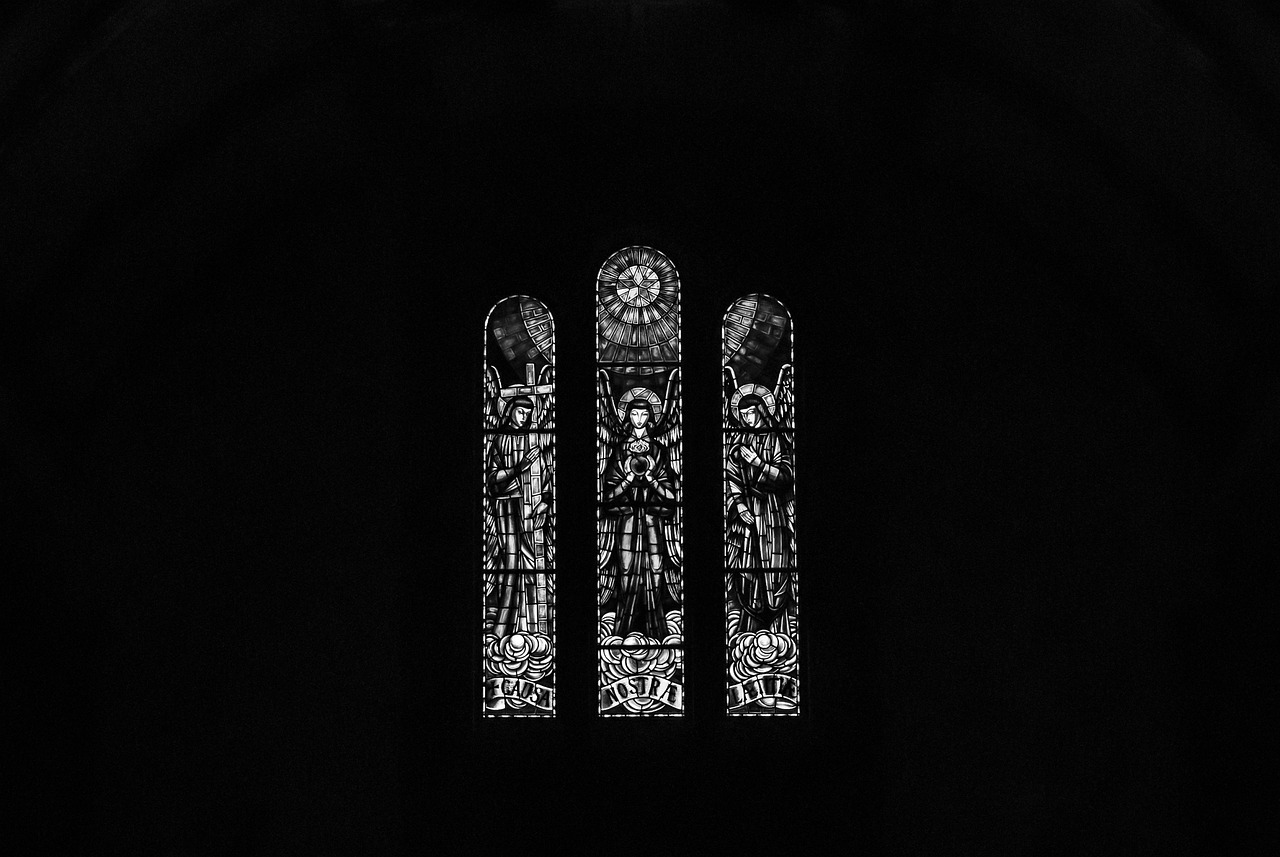
Kierkegaard’s Leap of Faith
When we dive into the philosophical waters of Kierkegaard's Leap of Faith, we find ourselves navigating through a sea of uncertainty and existential questions. Søren Kierkegaard, often hailed as the father of existentialism, introduced this profound concept to illustrate the complex relationship between faith and reason. For Kierkegaard, faith is not merely a passive acceptance of beliefs; rather, it is an active, dynamic commitment that requires a courageous leap into the unknown.
Imagine standing at the edge of a cliff, staring down into a foggy abyss. You can't see what lies below, but you feel a pull, a calling to jump. This metaphor captures Kierkegaard's essence of faith. He posited that true belief often demands us to embrace uncertainty, to make a personal commitment to something greater than ourselves, even when evidence and reason may suggest otherwise. This leap is not just about blind faith; it's about recognizing the limits of rationality and the necessity of personal choice in the face of life's profound dilemmas.
Kierkegaard's perspective challenges us to consider the following key points:
- Subjectivity of Faith: Faith is deeply personal and subjective. What one person believes may not resonate with another, highlighting the uniqueness of individual experiences.
- Existential Anxiety: The leap of faith often arises from existential anxiety, the discomfort of uncertainty and the search for meaning in a chaotic world.
- Authenticity: Embracing faith authentically means acknowledging our doubts and fears while still choosing to believe.
In Kierkegaard's view, the leap of faith is essential for achieving true authenticity. It's about making choices that define who we are, despite the inherent risks involved. He famously stated that "the leap of faith" is not just a one-time event but a continual process of reaffirmation and commitment. This notion resonates strongly in today’s world, where many grapple with questions of identity, purpose, and belonging.
Ultimately, Kierkegaard's leap of faith invites us to ponder our own beliefs and the courage it takes to embrace them. It encourages us to confront our fears and uncertainties head-on, crafting a narrative of faith that is uniquely our own. In a world where many seek clear answers, Kierkegaard reminds us that sometimes, the most profound truths lie just beyond the edge of our understanding, waiting for us to take that daring leap.
- What is Kierkegaard's concept of the leap of faith? Kierkegaard's leap of faith refers to the act of making a personal commitment to belief in something greater, despite the uncertainties and lack of empirical evidence.
- Why is the leap of faith important in existential philosophy? The leap of faith allows individuals to confront their existential anxieties and make authentic choices that define their existence.
- Can faith coexist with reason according to Kierkegaard? Yes, Kierkegaard suggests that faith and reason can coexist, but faith often transcends rational thought, requiring a personal commitment that goes beyond logical reasoning.

leap of faith,
Exploring the intersection of faith and philosophical thought, this article delves into how belief systems shape human understanding, ethics, and existential inquiries across various philosophical traditions.
Understanding faith is crucial in philosophy. It encompasses belief, trust, and confidence in concepts or entities, often transcending empirical evidence, influencing philosophical discourse on knowledge, existence, and morality.
Throughout history, faith has been a central theme in philosophy. Ancient philosophers, theologians, and modern thinkers have grappled with its implications for human thought and existence, shaping diverse philosophical traditions.
Ancient philosophers like Plato and Aristotle explored the role of faith in understanding the cosmos, ethics, and the divine, laying foundational ideas that continue to influence philosophical inquiry today.
Plato’s allegory illustrates the contrast between belief and knowledge, emphasizing the journey from ignorance to enlightenment, where faith plays a pivotal role in perceiving higher truths.
Aristotle’s virtue ethics highlights the importance of character and moral virtues, suggesting that faith in ethical principles can guide individuals toward a fulfilling and virtuous life.
Modern philosophers such as Kierkegaard and Nietzsche examined faith’s existential dimensions, questioning its role in personal identity, meaning, and the human condition in a rapidly changing world.
The relationship between faith and reason has been a longstanding debate in philosophy, with various thinkers arguing whether faith complements or contradicts rational thought in the pursuit of truth.
Some philosophers argue that faith can enhance reason, providing a broader context for understanding existential questions and moral dilemmas that pure rationality may not fully address.
Others contend that faith and rationalism are inherently opposed, suggesting that reliance on faith can lead to dogmatism, while reason encourages skepticism and critical thinking in philosophical discourse.
Existential philosophers often explore faith as a response to life's inherent uncertainties, emphasizing individual choice, authenticity, and the quest for meaning in an often absurd world.
Kierkegaard introduced the concept of the leap of faith, suggesting that true belief requires embracing uncertainty and making a personal commitment to faith amid existential dilemmas. This idea resonates deeply in a world filled with ambiguity and doubt. Just as one might take a literal leap off a cliff, trusting that a net will catch them, Kierkegaard posits that individuals must sometimes take a metaphorical leap into faith, choosing to believe despite the absence of concrete evidence. This leap is not merely an act of blind faith; rather, it is a conscious decision to trust in something greater than oneself, often in the face of overwhelming uncertainty.
In Kierkegaard’s view, faith is deeply personal and subjective. It is not about adhering to dogma but about the individual's relationship with the divine, which can only be understood through personal experience. This perspective invites individuals to consider their own beliefs and the motivations behind them. Are they truly their own, or are they inherited from society? This questioning can lead to profound personal insights and growth.
Ultimately, the leap of faith is about accepting that some aspects of existence may remain unknowable. It encourages individuals to embrace their freedom and responsibility in choosing their beliefs, which can lead to a more authentic and meaningful life.
Nietzsche’s proclamation of the death of God challenges traditional faith, prompting philosophical inquiry into the implications for morality, meaning, and the human experience in a secular age.
The interplay between faith and ethics raises profound questions about moral frameworks. Philosophers debate whether ethical principles are grounded in faith, reason, or a combination of both.
Theological ethics posits that moral values derive from divine commands, suggesting that faith-based systems provide a foundation for ethical behavior and decision-making in human societies.
Conversely, secular ethics argues for moral reasoning independent of faith, asserting that ethical principles can be derived from human experience, logic, and the collective well-being of society.
As contemporary society evolves, the role of faith in philosophy continues to adapt, prompting ongoing discussions about its relevance in addressing modern existential and ethical challenges.
Interfaith dialogues encourage philosophical exploration of faith across cultures, fostering mutual understanding and cooperation in addressing global issues through shared ethical frameworks.
In an increasingly scientific world, the challenge remains to reconcile faith with empirical knowledge, prompting philosophers to explore new paradigms that honor both belief and scientific inquiry.
- What is a leap of faith? A leap of faith is a decision to trust in something without concrete evidence, often associated with personal belief and commitment.
- How does Kierkegaard define faith? Kierkegaard defines faith as a deeply personal and subjective experience, emphasizing the individual's relationship with the divine.
- Can faith coexist with reason? Yes, many philosophers argue that faith can complement reason, providing context for understanding existential questions.
- What are the implications of Nietzsche's death of God? Nietzsche's declaration prompts a reevaluation of morality and meaning in a secular world, questioning traditional faith structures.

suggesting that true belief requires embracing uncertainty and making a personal commitment to faith amid existential dilemmas.
Exploring the intersection of faith and philosophical thought, this article delves into how belief systems shape human understanding, ethics, and existential inquiries across various philosophical traditions.
Understanding faith is crucial in philosophy. It encompasses belief, trust, and confidence in concepts or entities, often transcending empirical evidence, influencing philosophical discourse on knowledge, existence, and morality.
Throughout history, faith has been a central theme in philosophy. Ancient philosophers, theologians, and modern thinkers have grappled with its implications for human thought and existence, shaping diverse philosophical traditions.
Ancient philosophers like Plato and Aristotle explored the role of faith in understanding the cosmos, ethics, and the divine, laying foundational ideas that continue to influence philosophical inquiry today.
Plato’s allegory illustrates the contrast between belief and knowledge, emphasizing the journey from ignorance to enlightenment, where faith plays a pivotal role in perceiving higher truths.
Aristotle’s virtue ethics highlights the importance of character and moral virtues, suggesting that faith in ethical principles can guide individuals toward a fulfilling and virtuous life.
Modern philosophers such as Kierkegaard and Nietzsche examined faith’s existential dimensions, questioning its role in personal identity, meaning, and the human condition in a rapidly changing world.
The relationship between faith and reason has been a longstanding debate in philosophy, with various thinkers arguing whether faith complements or contradicts rational thought in the pursuit of truth.
Some philosophers argue that faith can enhance reason, providing a broader context for understanding existential questions and moral dilemmas that pure rationality may not fully address.
Others contend that faith and rationalism are inherently opposed, suggesting that reliance on faith can lead to dogmatism, while reason encourages skepticism and critical thinking in philosophical discourse.
Existential philosophers often explore faith as a response to life's inherent uncertainties, emphasizing individual choice, authenticity, and the quest for meaning in an often absurd world.
Kierkegaard introduced the concept of the leap of faith, suggesting that true belief requires embracing uncertainty and making a personal commitment to faith amid existential dilemmas. This idea resonates deeply in a world where certainty is often elusive. The leap of faith is not merely an act of blind belief; rather, it is a conscious choice to trust in something greater than oneself, despite the lack of concrete evidence. It's akin to standing at the edge of a cliff, looking down into the abyss, and deciding to jump, trusting that something will catch you. This leap embodies a profound personal commitment, reflecting a willingness to confront the unknown and engage with life's complexities.
Nietzsche’s proclamation of the death of God challenges traditional faith, prompting philosophical inquiry into the implications for morality, meaning, and the human experience in a secular age.
The interplay between faith and ethics raises profound questions about moral frameworks. Philosophers debate whether ethical principles are grounded in faith, reason, or a combination of both.
Theological ethics posits that moral values derive from divine commands, suggesting that faith-based systems provide a foundation for ethical behavior and decision-making in human societies.
Conversely, secular ethics argues for moral reasoning independent of faith, asserting that ethical principles can be derived from human experience, logic, and the collective well-being of society.
As contemporary society evolves, the role of faith in philosophy continues to adapt, prompting ongoing discussions about its relevance in addressing modern existential and ethical challenges.
Interfaith dialogues encourage philosophical exploration of faith across cultures, fostering mutual understanding and cooperation in addressing global issues through shared ethical frameworks.
In an increasingly scientific world, the challenge remains to reconcile faith with empirical knowledge, prompting philosophers to explore new paradigms that honor both belief and scientific inquiry.
- What is the role of faith in philosophy?
Faith plays a crucial role in shaping ethical frameworks, understanding existence, and addressing existential questions. - How do ancient philosophers view faith?
Ancient philosophers like Plato and Aristotle viewed faith as integral to understanding ethics and the cosmos. - Can faith and reason coexist?
Yes, many philosophers argue that faith can complement reason, providing deeper insights into moral and existential dilemmas. - What is Kierkegaard's leap of faith?
Kierkegaard's leap of faith emphasizes the necessity of embracing uncertainty and making personal commitments to belief.

Nietzsche and the Death of God
Friedrich Nietzsche, a provocative and influential philosopher, famously declared that "God is dead." This statement is not merely a theological assertion; it is a profound commentary on the shifting landscapes of morality, meaning, and human experience in a rapidly changing world. Nietzsche's proclamation serves as a metaphor for the decline of traditional religious beliefs in the face of modernity and scientific rationalism. But what does this really mean for philosophy and our understanding of existence?
At its core, Nietzsche's idea of the death of God challenges the very foundations of Judeo-Christian morality. He argued that, without a divine figure to provide absolute truths and moral guidance, humanity is left to navigate a world that can often feel chaotic and devoid of inherent meaning. This existential crisis can lead to a sense of nihilism, where individuals may question the value of their actions and the purpose of life itself.
However, Nietzsche did not simply lament the loss of faith; he also saw this as an opportunity for **re-evaluation** and **creative rebirth**. He encouraged individuals to embrace their freedom and responsibility in a godless world. Instead of relying on external moral codes, Nietzsche advocated for the creation of personal values and meanings. This perspective aligns with the existentialist belief that individuals must forge their own paths and define their own existence.
Nietzsche's concept of the Übermensch, or "Overman," is central to his philosophy. He envisioned this figure as someone who transcends traditional morality to create their own values, living authentically and courageously in the face of life's absurdities. The Übermensch represents a rejection of nihilism and an embrace of life's challenges, transforming suffering into strength.
In summary, Nietzsche's declaration of the death of God is a complex and multifaceted exploration of faith, morality, and existence. It invites us to confront uncomfortable truths about our beliefs and encourages a proactive approach to defining our own values in a world that no longer offers clear answers. As we navigate this philosophical landscape, we must ask ourselves: How do we find meaning in a world devoid of divine guidance?
- What does Nietzsche mean by "God is dead"?
This phrase signifies the decline of traditional religious beliefs and the implications for morality and meaning in a modern context. - How does Nietzsche's philosophy relate to existentialism?
Nietzsche's ideas about individual freedom and the creation of personal values align closely with existentialist thought, emphasizing the importance of individual choice. - What is the Übermensch?
The Übermensch is Nietzsche's concept of an individual who transcends traditional morality to create their own values and live authentically. - Can we find meaning without faith?
Nietzsche argues that while traditional sources of meaning may be lost, individuals have the capacity to create their own meaning through personal values and experiences.

death of God
Exploring the intersection of faith and philosophical thought, this article delves into how belief systems shape human understanding, ethics, and existential inquiries across various philosophical traditions.
Understanding faith is crucial in philosophy. It encompasses belief, trust, and confidence in concepts or entities, often transcending empirical evidence, influencing philosophical discourse on knowledge, existence, and morality.
Throughout history, faith has been a central theme in philosophy. Ancient philosophers, theologians, and modern thinkers have grappled with its implications for human thought and existence, shaping diverse philosophical traditions.
Ancient philosophers like Plato and Aristotle explored the role of faith in understanding the cosmos, ethics, and the divine, laying foundational ideas that continue to influence philosophical inquiry today.
Plato’s allegory illustrates the contrast between belief and knowledge, emphasizing the journey from ignorance to enlightenment, where faith plays a pivotal role in perceiving higher truths.
Aristotle’s virtue ethics highlights the importance of character and moral virtues, suggesting that faith in ethical principles can guide individuals toward a fulfilling and virtuous life.
Modern philosophers such as Kierkegaard and Nietzsche examined faith’s existential dimensions, questioning its role in personal identity, meaning, and the human condition in a rapidly changing world.
The relationship between faith and reason has been a longstanding debate in philosophy, with various thinkers arguing whether faith complements or contradicts rational thought in the pursuit of truth.
Some philosophers argue that faith can enhance reason, providing a broader context for understanding existential questions and moral dilemmas that pure rationality may not fully address.
Others contend that faith and rationalism are inherently opposed, suggesting that reliance on faith can lead to dogmatism, while reason encourages skepticism and critical thinking in philosophical discourse.
Existential philosophers often explore faith as a response to life's inherent uncertainties, emphasizing individual choice, authenticity, and the quest for meaning in an often absurd world.
Kierkegaard introduced the concept of the leap of faith, suggesting that true belief requires embracing uncertainty and making a personal commitment to faith amid existential dilemmas.
Nietzsche’s proclamation of the challenges traditional faith, prompting philosophical inquiry into the implications for morality, meaning, and the human experience in a secular age. This bold assertion does not imply the literal demise of a deity but rather signifies a profound shift in societal values and beliefs. Nietzsche argued that the decline of religious faith in the modern world leads to a crisis of meaning, as the moral frameworks previously grounded in divine authority begin to erode.
In this context, individuals are faced with the responsibility of creating their own values and meanings in a universe that lacks inherent purpose. This idea can be daunting, yet it also liberates people from dogmatic constraints, allowing for a more authentic exploration of existence. The serves as a catalyst for existential reflection, urging us to confront the void left by traditional belief systems.
Nietzsche’s exploration of this theme resonates deeply in contemporary discussions about spirituality and morality. As we navigate a world increasingly influenced by science and rationality, questions arise regarding how to establish ethical foundations without relying on faith. The challenge lies in reconciling our quest for meaning with the realities of a secular existence, ultimately leading to a more profound understanding of what it means to be human in a post-religious landscape.
The interplay between faith and ethics raises profound questions about moral frameworks. Philosophers debate whether ethical principles are grounded in faith, reason, or a combination of both.
Theological ethics posits that moral values derive from divine commands, suggesting that faith-based systems provide a foundation for ethical behavior and decision-making in human societies.
Conversely, secular ethics argues for moral reasoning independent of faith, asserting that ethical principles can be derived from human experience, logic, and the collective well-being of society.
As contemporary society evolves, the role of faith in philosophy continues to adapt, prompting ongoing discussions about its relevance in addressing modern existential and ethical challenges.
Interfaith dialogues encourage philosophical exploration of faith across cultures, fostering mutual understanding and cooperation in addressing global issues through shared ethical frameworks.
In an increasingly scientific world, the challenge remains to reconcile faith with empirical knowledge, prompting philosophers to explore new paradigms that honor both belief and scientific inquiry.
- What does Nietzsche mean by the "death of God"? Nietzsche's phrase refers to the decline of traditional religious beliefs in society, which he believed created a crisis of meaning.
- How does faith influence ethics? Faith can provide a moral framework for individuals, while secular ethics relies on human experience and reason.
- Can faith and reason coexist? Yes, many philosophers argue that faith can complement reason, enriching our understanding of existential questions.

challenges traditional faith, prompting philosophical inquiry into the implications for morality, meaning, and the human experience in a secular age.
Exploring the intersection of faith and philosophical thought, this article delves into how belief systems shape human understanding, ethics, and existential inquiries across various philosophical traditions.
Understanding faith is crucial in philosophy. It encompasses belief, trust, and confidence in concepts or entities, often transcending empirical evidence, influencing philosophical discourse on knowledge, existence, and morality.
Throughout history, faith has been a central theme in philosophy. Ancient philosophers, theologians, and modern thinkers have grappled with its implications for human thought and existence, shaping diverse philosophical traditions.
Ancient philosophers like Plato and Aristotle explored the role of faith in understanding the cosmos, ethics, and the divine, laying foundational ideas that continue to influence philosophical inquiry today.
Plato’s allegory illustrates the contrast between belief and knowledge, emphasizing the journey from ignorance to enlightenment, where faith plays a pivotal role in perceiving higher truths.
Aristotle’s virtue ethics highlights the importance of character and moral virtues, suggesting that faith in ethical principles can guide individuals toward a fulfilling and virtuous life.
Modern philosophers such as Kierkegaard and Nietzsche examined faith’s existential dimensions, questioning its role in personal identity, meaning, and the human condition in a rapidly changing world.
The relationship between faith and reason has been a longstanding debate in philosophy, with various thinkers arguing whether faith complements or contradicts rational thought in the pursuit of truth.
Some philosophers argue that faith can enhance reason, providing a broader context for understanding existential questions and moral dilemmas that pure rationality may not fully address.
Others contend that faith and rationalism are inherently opposed, suggesting that reliance on faith can lead to dogmatism, while reason encourages skepticism and critical thinking in philosophical discourse.
Existential philosophers often explore faith as a response to life's inherent uncertainties, emphasizing individual choice, authenticity, and the quest for meaning in an often absurd world.
Kierkegaard introduced the concept of the leap of faith, suggesting that true belief requires embracing uncertainty and making a personal commitment to faith amid existential dilemmas.
Nietzsche’s proclamation of the death of God challenges traditional faith, prompting philosophical inquiry into the implications for morality, meaning, and the human experience in a secular age. This declaration does not merely signify the decline of religious belief; rather, it invites a profound reassessment of ethical frameworks and existential purpose. In a world where divine authority is questioned, individuals are faced with the daunting task of constructing their own moral compass. This shift raises critical questions:
- What happens to morality when it is no longer grounded in divine command?
- How do we find meaning in life without traditional faith-based narratives?
- Can secular ethics provide a robust alternative to faith-based morality?
As society grapples with these questions, Nietzsche's challenge serves as a catalyst for philosophical exploration. The implications extend beyond mere academic inquiry; they touch the very fabric of human experience, urging individuals to confront the absurdity of existence and seek authenticity in their choices. In this secular age, the quest for meaning becomes a personal journey, where faith, whether in a higher power or in humanity itself, can take on new forms. This evolution of faith invites a broader dialogue about the essence of belief in shaping our understanding of morality and existence.
The interplay between faith and ethics raises profound questions about moral frameworks. Philosophers debate whether ethical principles are grounded in faith, reason, or a combination of both.
Theological ethics posits that moral values derive from divine commands, suggesting that faith-based systems provide a foundation for ethical behavior and decision-making in human societies.
Conversely, secular ethics argues for moral reasoning independent of faith, asserting that ethical principles can be derived from human experience, logic, and the collective well-being of society.
As contemporary society evolves, the role of faith in philosophy continues to adapt, prompting ongoing discussions about its relevance in addressing modern existential and ethical challenges.
Interfaith dialogues encourage philosophical exploration of faith across cultures, fostering mutual understanding and cooperation in addressing global issues through shared ethical frameworks.
In an increasingly scientific world, the challenge remains to reconcile faith with empirical knowledge, prompting philosophers to explore new paradigms that honor both belief and scientific inquiry.
- What is the difference between faith and belief?
Faith often denotes a deeper trust or conviction in a system of thought, while belief can be more superficial or transient. - How does faith influence ethical decision-making?
Faith can provide a moral framework that guides individuals in making ethical choices, often rooted in religious or philosophical principles. - Can secular ethics be as valid as faith-based ethics?
Yes, many argue that secular ethics, based on reason and human experience, can provide a robust framework for moral decision-making.

Faith and Ethics
The interplay between faith and ethics raises profound questions about the foundations of moral frameworks. At the heart of this discussion lies the debate over whether ethical principles are grounded in faith, reason, or a combination of both. This relationship is not merely academic; it shapes our understanding of right and wrong, influencing everything from personal decisions to societal norms. In a world where diverse belief systems coexist, how do we navigate the complexities of ethics influenced by faith?
On one side of the spectrum, we have theological ethics, which posits that moral values derive from divine commands. This perspective suggests that faith-based systems provide a solid foundation for ethical behavior and decision-making in human societies. For example, many religious traditions advocate for principles such as compassion, justice, and honesty, which are seen as divinely inspired. By adhering to these principles, individuals often find a sense of purpose and direction in their moral lives.
In contrast, secular ethics argues for moral reasoning that is independent of faith. Proponents of this view assert that ethical principles can be derived from human experience, logic, and the collective well-being of society. This approach emphasizes the importance of critical thinking and rational discourse in ethical decision-making. For instance, secular ethical frameworks like utilitarianism and deontology provide structured methods for evaluating moral dilemmas based on outcomes or adherence to rules, respectively.
| Aspect | Theological Ethics | Secular Ethics |
|---|---|---|
| Source of Morality | Divine commands and religious teachings | Human reason and experience |
| Basis for Ethical Decisions | Faith and spirituality | Logic and societal well-being |
| Examples | Christianity, Islam, Judaism | Utilitarianism, Kantian ethics |
As we delve deeper into the relationship between faith and ethics, it becomes evident that both perspectives offer valuable insights. Theological ethics can provide a moral compass for individuals seeking guidance in their spiritual lives, while secular ethics encourages a more inclusive approach that considers the diverse beliefs of a pluralistic society. Ultimately, the challenge lies in finding a balance between these two frameworks, allowing for a rich dialogue that respects individual beliefs while fostering a collective ethical understanding.
In conclusion, the exploration of faith and ethics is not just an academic exercise; it is a vital conversation that shapes our world. As we face complex moral dilemmas in an increasingly interconnected society, the need for a nuanced understanding of how faith influences ethical behavior becomes paramount. By engaging with both theological and secular perspectives, we can cultivate a more comprehensive ethical framework that honors the diversity of human experience.
- What is the relationship between faith and ethics? Faith often provides a foundation for ethical principles, while secular ethics relies on reason and human experience.
- Can secular ethics exist without faith? Yes, secular ethics is based on rational thought and humanistic values, independent of religious beliefs.
- How can faith inform ethical decision-making? Faith can guide individuals in their moral choices, offering a sense of purpose and direction based on religious teachings.
- What are some examples of ethical frameworks? Theological ethics can include religious doctrines, while secular ethics can involve utilitarianism and deontological ethics.

Theological Ethics
Theological ethics is a fascinating branch of philosophy that examines the relationship between morality and divine command. It posits that our understanding of what is 'right' and 'wrong' is not merely a human construct but is deeply rooted in the principles established by a higher power. This perspective suggests that moral values are derived from religious texts, doctrines, and the nature of God, providing a framework for ethical behavior that transcends cultural and temporal boundaries.
One of the central tenets of theological ethics is the belief that ethical principles are not subjective but are grounded in an objective moral law that originates from God. This belief leads to a number of important implications:
- Divine Command Theory: This theory asserts that what is morally right is determined by God's commands. If God commands an action, it is deemed right; if He forbids it, it is wrong.
- Moral Absolutism: Theological ethics often embraces the idea of moral absolutes—certain actions are universally right or wrong, regardless of human opinion or societal norms.
- Faith as a Motivator: Adherents of theological ethics argue that faith not only informs moral decisions but also motivates individuals to act ethically out of love and reverence for God.
For many, this framework provides a sense of certainty in a world filled with moral ambiguity. It offers believers a clear guide for ethical decision-making, especially in complex situations where human reasoning might falter. However, critics of theological ethics raise important questions about its implications:
- Challenges of Interpretation: Different religious traditions and denominations interpret divine commands in varying ways, leading to potential conflicts over moral issues.
- Autonomy and Moral Agency: Critics argue that relying solely on divine command can undermine human moral agency, as it may promote obedience over genuine ethical reasoning.
Despite these challenges, theological ethics remains a vital area of philosophical inquiry. It invites individuals to explore profound questions such as: What does it mean to live a good life? How do we reconcile our personal beliefs with universal moral laws? In a world that often prioritizes individualism and subjective morality, theological ethics serves as a reminder of the enduring significance of faith in shaping our understanding of ethics.
- What is theological ethics? Theological ethics examines the relationship between morality and divine command, suggesting that moral values are rooted in religious beliefs.
- How does theological ethics differ from secular ethics? While theological ethics bases morality on divine commands, secular ethics derives moral principles from human experience and logic.
- Can theological ethics adapt to modern ethical dilemmas? Yes, many theologians and ethicists work to interpret ancient texts and principles in ways that address contemporary moral issues.
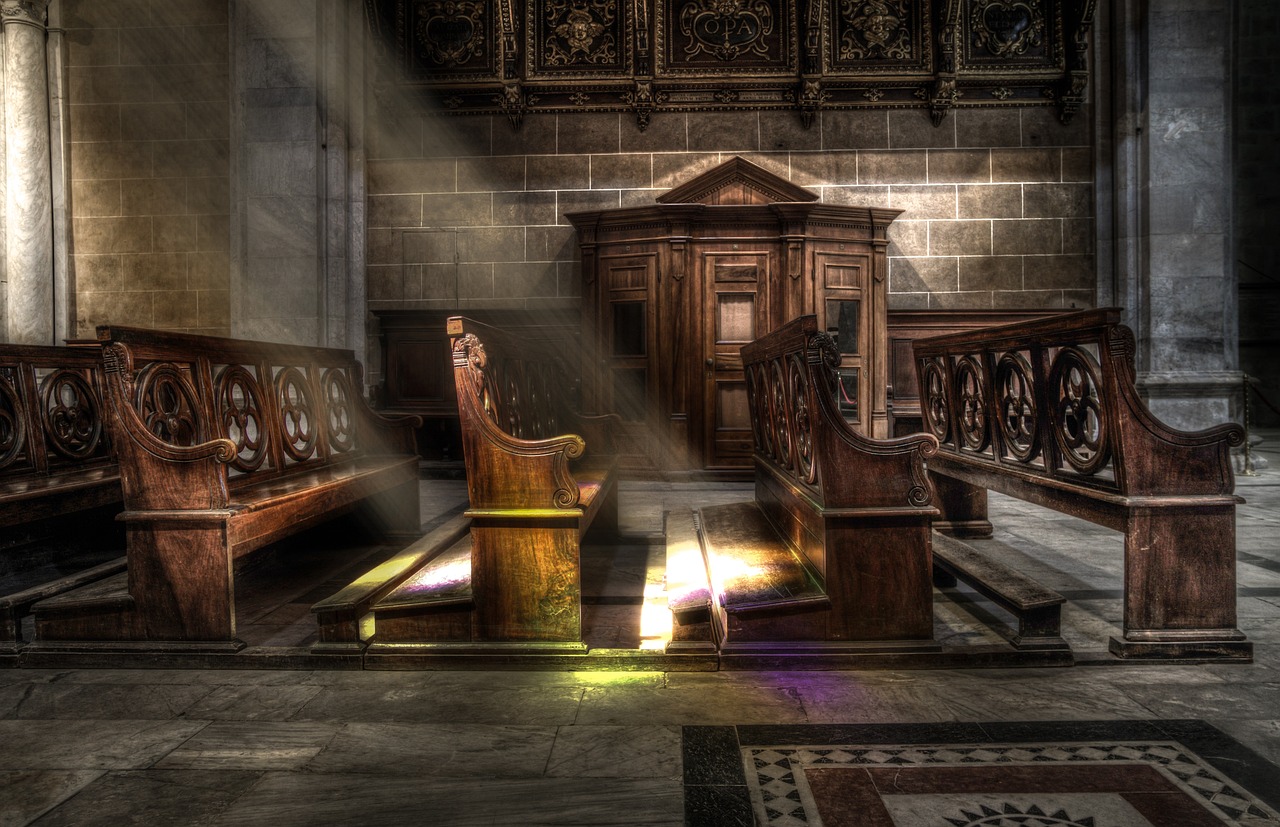
Secular Ethics
Secular ethics presents a fascinating perspective on morality that stands apart from faith-based systems. It emphasizes that ethical principles can be derived from human reason, experience, and a shared understanding of well-being, rather than relying on divine commands or religious doctrines. At its core, secular ethics seeks to answer the fundamental question: What is the right thing to do? This inquiry is rooted in the belief that humans are capable of making moral decisions based on rational thought and empathy.
One of the key tenets of secular ethics is the idea that morality is not static; it evolves with society's changing values and norms. This flexibility allows for a more inclusive approach to ethics, where diverse perspectives can be considered. For instance, secular ethical frameworks often prioritize principles such as:
- Utilitarianism: This principle suggests that the best action is the one that maximizes overall happiness or well-being.
- Deontological Ethics: This approach focuses on the adherence to rules and duties, emphasizing that some actions are inherently right or wrong, regardless of the consequences.
- Virtue Ethics: This perspective highlights the importance of character and virtues, suggesting that ethical behavior stems from cultivating good character traits.
Moreover, secular ethics encourages critical thinking and dialogue around moral issues, promoting a culture of questioning and reasoning. It invites individuals to consider the implications of their actions on others and the broader community. By fostering an environment where ethical discussions are grounded in logic and shared human experiences, secular ethics aims to create a more just and compassionate society.
As we navigate complex moral landscapes, secular ethics can serve as a guiding light, helping individuals and societies make informed choices that reflect their values and aspirations. This approach not only respects individual autonomy but also emphasizes our interconnectedness as human beings, reinforcing the idea that our actions have consequences that ripple through our communities.
- What is secular ethics? Secular ethics is a moral framework that derives ethical principles from human reason and experience, rather than religious beliefs.
- How does secular ethics differ from religious ethics? Unlike religious ethics, which are based on divine commandments, secular ethics focuses on rational thought and the well-being of individuals and society.
- Can secular ethics adapt to changing societal values? Yes! Secular ethics is inherently flexible and can evolve as societal values and norms change over time.
- What are some examples of secular ethical theories? Examples include utilitarianism, deontological ethics, and virtue ethics, each offering different perspectives on moral decision-making.

The Future of Faith in Philosophy
The future of faith in philosophy is a dynamic and evolving landscape, shaped by the rapid changes in society and human thought. As we move further into the 21st century, the role of faith is being reexamined through various lenses, prompting philosophers to engage with contemporary issues that challenge traditional beliefs. It's fascinating to consider how faith can adapt to modern existential questions and ethical dilemmas, especially in a world increasingly influenced by science and technology.
One of the most intriguing aspects of this future is the rise of interfaith dialogues. These conversations encourage individuals from different religious backgrounds to come together and explore their beliefs in a respectful and constructive manner. By fostering mutual understanding, interfaith dialogues can lead to collaborative efforts in addressing global challenges such as climate change, poverty, and social justice. The philosophical exploration of faith across cultures not only enriches our understanding of different belief systems but also promotes a shared ethical framework that can unite diverse communities.
As we navigate through a scientific age, the challenge remains to reconcile faith with empirical knowledge. This reconciliation is not merely a conflict of ideas but a profound philosophical inquiry into the nature of existence itself. Philosophers are increasingly tasked with exploring new paradigms that honor both belief and scientific inquiry. For instance, how can faith coexist with the rigorous demands of scientific evidence? This question invites a deeper exploration of the nature of truth and understanding, pushing the boundaries of both philosophy and faith.
Moreover, the digital age has transformed how we engage with faith and philosophy. Online platforms allow for the rapid dissemination of ideas, making it easier for individuals to explore philosophical thoughts from around the world. Social media can serve as a double-edged sword; while it provides a space for sharing diverse viewpoints, it can also lead to echo chambers where challenging discussions are stifled. Navigating this complex landscape requires a commitment to open-mindedness and critical thinking, ensuring that faith remains a vibrant part of philosophical discourse.
In conclusion, the future of faith in philosophy is not merely a continuation of past traditions but an exciting exploration of new ideas and perspectives. As philosophers grapple with the implications of faith in a modern context, they will undoubtedly uncover rich insights that can guide humanity in addressing the pressing issues of our time. The interplay between faith, reason, and ethics will continue to evolve, prompting ongoing dialogues that challenge our understanding of what it means to believe in an ever-changing world.
- What is the significance of faith in philosophy? Faith plays a crucial role in shaping human understanding, ethics, and existential inquiries, influencing how individuals perceive reality and make moral choices.
- How do interfaith dialogues contribute to philosophical thought? Interfaith dialogues foster mutual understanding and cooperation among different belief systems, encouraging philosophical exploration of shared ethical frameworks.
- Can faith coexist with scientific reasoning? Yes, many philosophers explore new paradigms that honor both faith and scientific inquiry, seeking to reconcile the two in addressing existential questions.
- What challenges does modern philosophy face regarding faith? Modern philosophy must navigate the complexities of technological advancements, cultural diversity, and the need for ethical frameworks that resonate in a secular age.

Interfaith Dialogues
Interfaith dialogues serve as a crucial platform for fostering understanding and cooperation among diverse religious traditions. In a world that is increasingly polarized by differences in belief, these dialogues offer a space where individuals can come together to share their perspectives, experiences, and values. The essence of interfaith dialogue is not merely about tolerating differences but actively engaging with them to build bridges of understanding.
One of the most significant aspects of interfaith dialogues is their ability to challenge preconceived notions and stereotypes about other faiths. By encouraging open communication, participants can dispel myths and misconceptions that often fuel conflict. This process is vital in promoting peace and harmony in societies where religious tensions may exist. As individuals share their beliefs, they often find common ground, which can lead to collaborative efforts in addressing social issues.
Moreover, interfaith dialogues can address pressing global challenges, such as poverty, environmental degradation, and human rights. By uniting diverse faith communities, these discussions can inspire collective action based on shared ethical principles. For instance, religious groups can mobilize their followers to engage in community service or advocate for social justice, demonstrating that faith can be a powerful catalyst for positive change.
To illustrate the impact of interfaith dialogues, consider the following key outcomes:
- Enhanced Mutual Understanding: Participants gain insights into the beliefs and practices of others, fostering respect and empathy.
- Collaborative Solutions: Faith communities can work together to tackle social issues, pooling resources and expertise.
- Conflict Resolution: Open dialogue can help resolve misunderstandings and reduce tensions between different religious groups.
As we look to the future, the importance of interfaith dialogues cannot be overstated. In an era marked by globalization and interconnectedness, these conversations will play a pivotal role in shaping a more inclusive and harmonious world. They remind us that while our beliefs may differ, our shared humanity binds us together, urging us to work towards a common good.
- What is the purpose of interfaith dialogues? Interfaith dialogues aim to promote understanding and cooperation among different religious traditions, fostering respect and collaboration.
- How can interfaith dialogues contribute to peace? By encouraging open communication and dispelling myths, interfaith dialogues can reduce tensions and lead to collaborative efforts in addressing social issues.
- Are interfaith dialogues only for religious leaders? No, interfaith dialogues can involve anyone interested in exploring and understanding different faiths, including laypeople.
- What are some common topics discussed in interfaith dialogues? Topics often include ethics, social justice, environmental concerns, and the role of faith in contemporary society.

Faith in a Scientific Age
In today's rapidly evolving world, the relationship between faith and science is a topic of intense debate and exploration. As scientific advancements continue to reshape our understanding of the universe, many individuals find themselves grappling with the implications of these discoveries on their belief systems. It's a fascinating intersection where faith and empirical evidence often seem at odds, yet they can also coexist in meaningful ways.
One of the core challenges in reconciling faith with science lies in the differing methodologies used by each. Science relies on observation, experimentation, and repeatability, while faith often involves a deep-seated trust in the unseen, the spiritual, and the metaphysical. This dichotomy raises important questions: Can faith provide answers to questions that science cannot? And conversely, can scientific discoveries challenge or even enhance our faith?
Many contemporary thinkers argue that faith can coexist with a scientific worldview. They suggest that while science can explain the how of the universe, faith can address the why. For instance, consider the following points:
- Complementary Perspectives: Faith can offer a broader context for understanding human existence, morality, and purpose, while science provides the tools for understanding the physical world.
- Ethical Implications: Scientific advancements, especially in fields like genetics and artificial intelligence, raise ethical questions that require a moral framework, which can often be informed by faith.
- Community and Identity: Faith communities can provide support and a sense of belonging that enriches the human experience, even in a scientifically driven society.
Moreover, the dialogue between faith and science is not merely a battle of ideologies; it's an evolving conversation. For example, many scientists are also people of faith who see no conflict between their scientific pursuits and their spiritual beliefs. They argue that the awe inspired by scientific discoveries can deepen one's faith, leading to a greater appreciation of the universe's complexity and beauty.
However, the challenge remains: how do we navigate the complexities of faith in a scientific age? It requires an open mind and a willingness to engage in dialogue, not just within religious communities but also across diverse scientific fields. As we continue to explore this relationship, it's essential to remember that both faith and science seek to answer fundamental questions about our existence, albeit from different angles.
In conclusion, the dialogue between faith and science is ongoing and essential for understanding our place in the universe. While they may approach the truth from different perspectives, both can contribute to a richer, more nuanced understanding of existence, morality, and the human experience. Embracing this complexity can lead to a more profound appreciation of both the seen and the unseen, allowing us to navigate the challenges of modern life with greater wisdom and compassion.
- Can faith and science coexist? Yes, many believe that faith and science can complement each other by addressing different questions about existence and morality.
- How does scientific discovery affect faith? Scientific discoveries can challenge traditional beliefs but can also deepen one's faith by revealing the complexity and beauty of the universe.
- What role does ethics play in the relationship between faith and science? Ethics is crucial in navigating the implications of scientific advancements, often informed by faith-based moral frameworks.
- Are there scientists who are also people of faith? Absolutely, many scientists identify as people of faith and find no conflict between their scientific work and their spiritual beliefs.
Frequently Asked Questions
- What is the definition of faith in philosophy?
Faith in philosophy refers to a deep-seated belief, trust, or confidence in concepts or entities that often transcends empirical evidence. It plays a crucial role in shaping our understanding of knowledge, existence, and morality, influencing philosophical discourse across various traditions.
- How has faith been viewed historically in philosophy?
Throughout history, faith has been a central theme in philosophical thought. Ancient philosophers like Plato and Aristotle examined its implications for human existence, while modern thinkers such as Kierkegaard and Nietzsche explored its existential dimensions, shaping diverse philosophical traditions.
- Is faith complementary to reason?
Yes, many philosophers argue that faith can enhance reason by providing a broader context for understanding existential questions and moral dilemmas. However, there are also views that suggest faith and rationalism can be opposed, leading to ongoing debates in philosophy.
- What role does faith play in existential philosophy?
In existential philosophy, faith is often seen as a response to life's inherent uncertainties. Thinkers like Kierkegaard emphasize the 'leap of faith,' suggesting that true belief requires embracing uncertainty and making personal commitments to faith amidst existential dilemmas.
- How does faith influence ethical frameworks?
The interplay between faith and ethics raises significant questions about the foundations of moral principles. Theological ethics argues that moral values derive from divine commands, while secular ethics suggests that ethical principles can be grounded in human experience and logic.
- What is the future of faith in philosophy?
As society evolves, the role of faith in philosophy continues to adapt. Ongoing discussions focus on its relevance in addressing modern existential and ethical challenges, including interfaith dialogues that foster mutual understanding and cooperation in tackling global issues.














